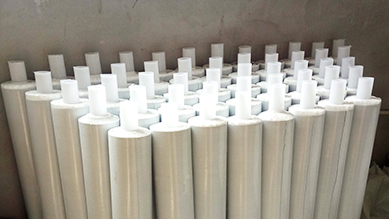Types of Electrical Insulation Tape A Comprehensive Guide
Electrical insulation tape is a crucial component in the electrical and electronic sectors. It plays a significant role in providing insulation, protection, and safety for wires and cables. With an array of options available on the market, it’s essential to choose the right type of tape for specific applications. This article will explore various types of electrical insulation tape, their properties, and their suitable uses.
1. PVC Electrical Insulation Tape
Polyvinyl chloride (PVC) insulation tape is one of the most common types used in electrical applications. It is available in various colors and is highly sought after for its excellent flexibility, cutting ease, and durability. PVC tape provides a reliable insulator against electricity and is resistant to abrasion, moisture, and chemicals. Its versatility makes it suitable for bundling, identifying, and insulating wire and cable connectors.
2. Rubber Electrical Insulation Tape
Rubber insulation tape is an excellent choice for high-voltage applications. It is highly resistant to heat and has outstanding electrical insulation properties, making it ideal for outdoor usage. This type of tape offers good adhesion and can handle extreme weather conditions. It also has self-vulcanizing properties, which means it can mold and adhere to irregular surfaces, providing an airtight seal.
3. Fiberglass Electrical Insulation Tape
Fiberglass tape is created using a glass fiber base and is often reinforced with a heat-resistant adhesive. This tape is particularly useful in high-temperature environments, as it can withstand temperatures up to 500°F (260°C). Fiberglass insulation tape is commonly used in electrical insulating purposes for electric motors, transformers, and other high-temperature applications where maximum heat resistance is required.
4. Mastic Electrical Insulation Tape
electrical insulation tape types

Mastic tape is a type of insulation tape that features a thick, sticky adhesive layer made from rubber or a similar compound. This type of tape excels in providing moisture protection and can create a robust seal against dust and dirt. Mastic insulation tape is often used for splicing and terminating wires in both indoor and outdoor environments, making it versatile for various applications.
5. Kapton Tape
Kapton tape, also known as polyimide tape, is made from a special polymer that provides high electrical insulation properties while remaining stable at elevated temperatures. This tape is commonly used in applications where both heat and electrical insulation are critical, such as in the aerospace and electronics industry. Kapton tape is essential for tasks such as masking during soldering, insulation for wires, and as a dielectric in various electronic components.
6. Teflon Tape
Teflon tape, made from polytetrafluoroethylene (PTFE), is often used in applications requiring chemical resistance and low friction. While it is not typically categorized strictly as electrical tape, it can be useful in certain electrical applications where corrosion resistance is required. Teflon tape is popularly used to insulate plumbing and electrical connections, particularly in environments where the risk of chemical exposure exists.
7. Self-Fusing Silicone Tape
Self-fusing silicone tape, also known as self-vulcanizing tape, is highly elastic and can stretch significantly without losing its insulating properties. This tape does not have any adhesive; instead, it fuses to itself when wrapped, creating a strong, seamless seal. This makes it ideal for repairing wet or damaged wires and cables, as well as in high-temperature applications. Its ability to withstand extreme environments, including UV exposure, makes it a favorite for automotive and outdoor electrical jobs.
Conclusion
Choosing the right electrical insulation tape can significantly impact the safety and efficiency of electrical applications. With the diverse range of options, including PVC, rubber, fiberglass, mastic, Kapton, Teflon, and self-fusing silicone tapes, it’s crucial to assess the specific requirements of your project. Understanding the properties and suitable uses of each type will help ensure optimal performance and safety in your electrical installations. Always prioritize quality and suitability to maintain the highest standards in electrical work.
-
XIANGFAN Rubber Tape-Ultimate Solutions for All Your Insulation NeedsNewsJun.24,2025
-
XIANGFAN Rubber Tape-Protection for Industrial and Residential ApplicationsNewsJun.24,2025
-
XIANGFAN Rubber Tape: Superior Safety and Sealing for Demanding EnvironmentsNewsJun.24,2025
-
XIANGFAN Rubber Tape: Reliable Solutions for Every Electrical ChallengeNewsJun.24,2025
-
XIANGFAN Electrical & Industrial Tape: Powering Reliability Across IndustriesNewsJun.24,2025
-
XIANGFAN Electrical & Industrial Tape: Excellence in Every ApplicationNewsJun.24,2025
